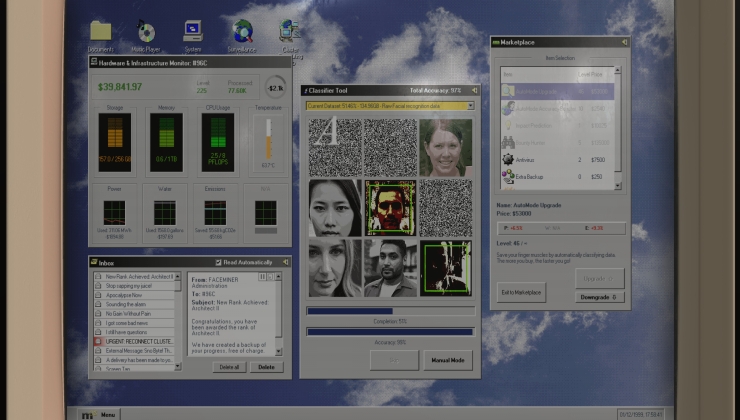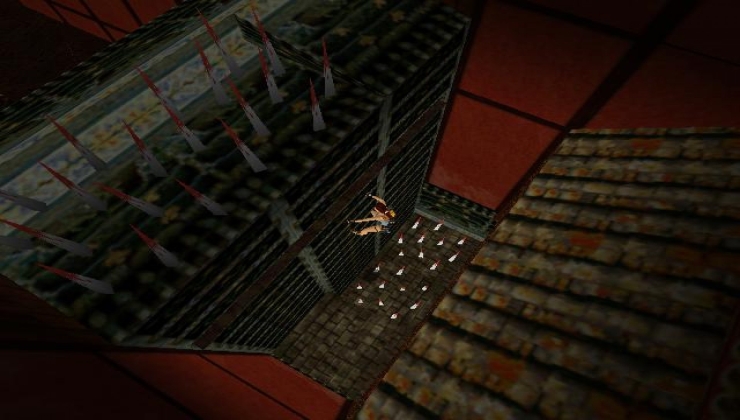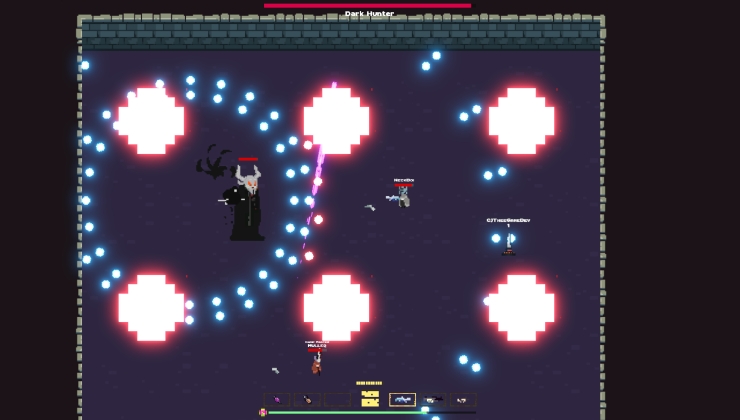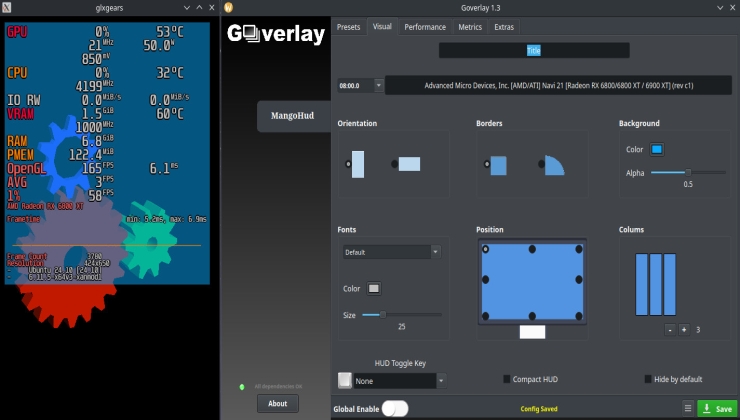The situation is currently a bit messy, with conflicting statements but it appears that Roblox should work again on Linux / Steam Deck with Wine eventually.
As a little refresher: Roblox acquired Byfron, makers of anti-cheat software. They've now fully integrated it into Roblox with what they now call Hyperion in their new 64 bit client. They made a choice to block Roblox in Wine with this update, giving an assortment of reasons but saying Wine was still a priority and then later seemingly backtracking on that a bit.
Hope is not lost though Roblox fans, as they've now put out a fresh comment on the subject to make it clear that while they won't support it officially, they aim to get it working again.
Here's the latest word on it:
To clarify one detail: while we have no plans to release a Linux client, we are aiming to support Wine again. It seems possible, and we see a lot of value in it as a way of letting people run on Linux without the large investment on our end of releasing a native client. For all the reasons described above, Wine won’t ever be something that we guarantee will work, but also for all the reasons described above, we’d really like to make it work.
Right now though, it's all just words of course. We'll have to wait and see if it happens.
So you need a Linux test machine, and you need to fix bugs in your game for running on Linux exactly as you would if you had a native build,The process of bugfixing a native Linux build vs one running through a compatibility layer and/or VM is not the same, no.
And neither are the bugs you will encounter. Things that break between Windows/Linux are different than things that break between Windows/Linux-Pretending-To-Be-Windows.
The first actually has way more possible breaking points, though a lot does depend on your engine used.
When you debug something through Proton, you need a Linux machine capable of starting your game (even a VM will typically do, if the bug you're hunting is not GPU-related). That's it.
All your development will still be done on Windows, you don't need any familiarity with the platform other than "copy files to target machine".
I'd barely even call it debugging, honestly. It's make change, rebuild, launch, test if it works now.
It is rather inefficient, but also very simple and any dev can pull it off, even if they've never used Linux.
When you debug a native build (no matter the platform, actually), you first of all need a complete development environment on the target platform for all the usual development tools like running a debugger (best a debugging build if that's something your stack supports).
All of this is much more involved and requires familiarity with the platform at hand.
What it gives you is a way better toolset to find and fix bugs.
So, native development is actually way more powerful and efficient. I'd always do it if given the possibility.
The advantage of fixing bugs specifically for Proton is really only that you need no "intimidating" familiarity with Linux.
But that advantage is incredibly huge to those who (unfortunately) think Linux would be difficult to use for them due to lack first hand experience.
I don't know many devs that wouldn't prefer working on Linux after they have gotten used to it (which doesn't even take that much time). But I also know a lot of developers that will just never even try because they are too afraid of having to work with an unfamiliar environment.
I feel like all of this has a lot more to do with psychology than it does with actual attributes of the different platforms. But in the end, it is what it is, and the result is that working with Proton is a lot more friendly to Windows-devs than doing and maintaining a native Linux build.
Last edited by TheSHEEEP on 15 May 2023 at 6:08 pm UTC
Which is one of the great strengths of Linux - it doesn't need to carry that extreme burden of having to support decades of legacy-code and programs.
Where the hell did you get this strange idea?
It's the exact opposite of what you are thinking: [Linux does not break userspace!](https://linuxreviews.org/WE_DO_NOT_BREAK_USERSPACE)
You are absolute right about the Kernel. It really never broke userspace. Also simple binary executables are just ELF executables, are independent of distro and do not break. But this is not the whole story. Libraries unfortunately do break especially desktop environment. People should really stop depending on desktop environment libraries like gnome.
This problem is actually getting better. Pipewire managed to not break Pulseaudio, Linux gaming is based on SDL, there is the idea of portals for applications to ask the desktop to do something natively to the desktop without being dependent on a desktop library that may break and so on. So linux is transforming to a trustworthy platform in this issue.
Last edited by lucinos on 15 May 2023 at 7:21 pm UTC
linux kernel does not break userspace but breaks internal ABIs so it gets badmouthed by nvidia and the likes of it
however linux distros do have a few dire cases of ongoing userspace API breakage (eg: X.org to Wayland)
also for games and closed-source apps the fact that libs are centraly provided in a distro/user-controlled version by default rather than bundled with each app in a frozen version bothers windows-mindset devs
ps: i rather see an app break and a shim need to be constructed for some API breakage than have the app bundle a version of OpenSSL with heartbleed into it years after the lib provided by the OS was fixed
also linux did have a larger issue with non-kernel and in-kernel API breakage but Valve and a bunch of talented devs reversed this trend beautifully through the past decade, so much so that several opensource compatibility layers born from and for linux needs are ending up being used to improve software compatibility in windows (eg: DXVK can be deployed as a .dll on windows to help games that aren't working properly on DirectX 9 through 11 on windows run over Vulkan, circumventing issues that arose from windows, drivers and APIs behaving differently over time and breaking games... or even adding game-specific patches in the extra layer when microsoft and hardware driver devs don't do it)
linux also exports better API compatibility to iOS and OSX now, with stuff like Zink over MoltenVK working to keep OpenGL apps alive despite Apple's uncerimonious deprecation of OpenGL APIs years ago... it's comical how Apple is hardly ever mentioned as a bigger nuissance for API breakage than Linux, or Android SDKs for that matter... both are a nightmare to keep up with (even non-dev users can see it from their POV due to UX breakages the SDK changes intriduce at every major version, several times without so much as a warning shot), but devs seem to be quite stoic regarding those platforms
edit:
I should also mention just how much windows API stability across OS version worsened lately, which some devs and expectators don't seem to notice... IMHO it's something that started around the time of UWP, which is when the money to be made was strongly in the realm of making it harder for traditional apps to keep working and forcing the bulk of them into Microsoft Store via rewritten UWP versions...
it didn't work nearly as well as Microsoft hoped for, and Valve stepped up their Linux efforts due to this (because it was an existential threat to any other games/apps store on windows, obviously)
and now we have windows 10 and 11 with a much stronger focus on breaking old stuff if necessary to ensure new stuff is as good as it can be, as a general decision driving force and as a public discourse for choices they made in many aspects of the new OS versions
and this leaves entire machines out of the loop, hardware parts driverless, older apps working better on WINE than on Windows itself, DXVK as a necessary workaround on windows, etc
Last edited by Marlock on 15 May 2023 at 8:05 pm UTC
Oh dear, purists are always such fun.Which is one of the great strengths of Linux - it doesn't need to carry that extreme burden of having to support decades of legacy-code and programs.
Where the hell did you get this strange idea?
It's the exact opposite of what you are thinking: [Linux does not break userspace!](https://linuxreviews.org/WE_DO_NOT_BREAK_USERSPACE)
The kernel does not break userspace.
But do you know what does?
Userspace does.
And that's a good thing.
Maintenance of old crap (and yes, I picked that word deliberately) slows down everything in software development. Absolutely everything.
And it hinders improvements. "Oh we can't make this amazing improvement because it would break some old stuff barely anyone uses anymore anyway. So we either can't do it or need to do it twice as cumbersome in order to keep carrying legacy code" - and this issue increases exponentially with every decision made of that kind.
If Linux software adhered to the same mantra as Windows does (or did, they are finally moving away from that, step by step), almost none of us would be here, as the Linux ecosystem would vaguely be where it was 15-20 years ago.
You have to be willing to break things to achieve improvements in software development.
The kernel mantra only makes sense in the rarest of rarest of occasions - Linux kernel being one of them
Last edited by TheSHEEEP on 15 May 2023 at 8:27 pm UTC
For example, I have a perfectly good laptop from 2012 that can still play games and has inbuilt nvidia gtx 580M that I used to play Pathfinder KingmakerThat is probably true for you and what... 10 other people? Looking at the recent Steam hardware surveys that GPU doesn't even appear there...
Everyone else upgrades their hardware eventually.
You cannot even sell that old hardware anymore as nobody is buying it - this does flip around, though, once a certain vintage age is reached.
Guess what? On linux the support ended in 2019 and I can't use it on modern systems because of an old xorg version. That's just dumb.The support of WHAT ended in 2019? You said xorg, but how does that prevent you from using the laptop using older versions?
And how is that dumb? They've moved on as did the vast majority of everyone else.
You'd have to be a complete fool as any project manager to use an ever-increasing amount of resources to keep compatibility with an ever-decreasing amount of users.
On the contrary, it should be trying to get people to install Linux on old hardware (that is still perfectly usuable) by promising support via drivers and stuff, that way we can be expanding our user base as word of mouth will spread, especially in countries that still have many users using old hardware "hey you know how windows 11 can't run on your pc and windows 10 runs like trash? Well, I heard this thing called Linux runs really well and you can play all your old games on it too"You radically overestimate the amount of people running such old hardware or how much of an impact they could make on any statistic.
Besides, Linux is already the best thing to get some use out of old hardware.
If all you want to do is run older (or less demanding) games on an old laptop, you can already do that with Linux.
Having to stick with older software (like an older version of Ubuntu, for example) on an 11 year old laptop in order to achieve that seems pretty damn logical to me.
In contrast to Windows, there are even Linux distros specifically MADE to support old hardware - I honestly don't know what your issue here is.
Last edited by TheSHEEEP on 16 May 2023 at 2:29 pm UTC
Much of the third world doesn't bother upgrading their PCs as it is rather expensive. Besides, if I still have a perfectly usable computer, why would I throw it out if it still works?I get that, but we're talking about what does or doesn't make sense for the teams and companies that develop software.
And those have mouths to feed so they move where the money is. And that is not in third world countries.
What I would expect is that inside of those countries themselves there would be a movement to make things work better, if there is a demand. Similar to what happened in the former Soviet countries concerning video games, etc.
As it is, it just looks to me like there is no demand to have this particular functionality.
The support of the Nvidia drivers for the 550 GT M graphics card end from NVIDIA in 2019. You can't install the driver on a modern operating system because it is tied to an older version of xorg. And trying to install that older version of xorg breaks compatibility with everything.I get how that is annoying, but that is hardly Linux' fault.
You are using a card that is not officially supported anymore by its own manufacturer. Blame them, if you must blame anyone.
Windows doesn't intentionally break compatibility with old drivers.Pffft! Tons of old hardware cannot be used with Windows anymore, their old drivers not installed anymore - but can be used with Linux as a TON of drivers are actually part of the kernel (which "never" breaks things).
Drivers for NVIDIA cards are unfortunately not among them (but again, that's on NVIDIA).
Just in this particular case it seems that the old GPU drivers do still work on "modern" Windows (I mean, even win10 isn't really that modern anymore, is it?).
That's frankly more of a coincidence than anything else - there's certainly nobody at MS going "nah, we have to make sure the 550m cards don't break" ;)
Plenty of software from around 2012 and earlier doesn't work nicely anymore on Win10+.
Besides, aren't Mesa drivers supposed to work fine with older GPUs, even if they are NVIDIA ones?
I have never tried that, but that's what I heard anyway.
What distros are made to support old hardware?Honestly, just google "linux distros for old hardware". Of course, not all results are going to be perfect fits, but there are so many "lightweight" distros out there meant specifically for older and/or less powerful machines it's hard to pick one.
So you pick one of those, and then the newest version of them that still supports your GPU driver and you should be golden, no?
Sure, that means you'll not get the newest versions of everything, but that is quite simply a given when trying to use decade-old hardware that isn't even supported anymore by its own manufacturer - because, again, the number of users is way too small to put effort into maintaining compatibility for a very long time.
And I have an issue with there being no translation layer that gives you the features of Vulcan but using opengl on old hardware. Many older games (like Deus Ex Human Revolution) work well on this hardware on windows, but barely work on Linux using openglI frankly doubt that OpenGL itself has much of a future ahead, at least on PC platforms, due to Vulkan.
What I don't know is what keeps Vulkan from working on older hardware. Certain features not present?
Last edited by TheSHEEEP on 16 May 2023 at 3:53 pm UTC
Much of the third world doesn't bother upgrading their PCs as it is rather expensive.Mind you, there is nothing stopping "much of the third world" from putting together a retro distro specializing in old hardware. We're talking billions of people, a surprising number of whom have computer skills, and it only takes maybe half a dozen people to do a decent distro. That's one beauty of the GPL, eh? The third world don't just have to passively consume whatever Microsoft decides to give them.
Anyway, I don't frankly think there's much of an argument for Linux breaking old hardware more than other OSes. I don't think that's the case. And I agree with TheSHEEEP that it's not a huge issue.
But Linux breaking old software, that's another question. I think it clearly does, and although it hasn't been a huge problem in the past, it's a barrier to expanded Linux desktop use. It hasn't been a huge problem in the past because most the Linux software ecosystem has been open source. Active open source projects get updated to depend on newer libraries more or less as those libraries are themselves updated. There's some slippage, which has resulted in distros and package managers having to come up with ways of keeping multiple library versions working side by side, but basically open source software that's in common-ish use normally kind of keeps up with changes in Linux itself. So for the open source Linux software ecosystem it hasn't mattered much that Linux libraries keep changing and breaking compatibility. It still matters some . . . sometimes nice bits of niche software get abandoned and for the people in that niche it would be nice to keep on using them anyway. But it's been an irritant, not a dealbreaker.
But closed software is a different story. Closed software (such as most games) does not get eternally updated. Closed software on Linux becomes unusable faster than closed software on Windows. And this is a problem. Mind you, there are solutions going forward--I think things like Flatpaks are useful for this, for the future. If someone releases a closed application on Linux via a Flatpak, that Flatpak will keep working for quite a while. Even if it stops working, you could probably figure out what broke it, stick an appropriate version of that in the Flatpak too, and keep going. The Steam Runtime sort of does that, although I'm not sure it allows you to maintain different versions and have old software run in an older Steam Runtime. Still, it surely could do that. But that doesn't help now for software from the past. I can no longer get my Loki games to work.
It might be good to have some sort of "Wine for old Linux" project which makes containers with appropriate stuff in them for old Linux software.
Last edited by Purple Library Guy on 16 May 2023 at 4:52 pm UTC
Except that nothing I wrote was incorrect.Oh dear, purists are always such fun.Purists? What the actual fuck? I just pointed out some blatantly incorrect shit you wrote.
You just took offense that I wasn't impressed by your feeble attempt at making an argument.
It was amusing, though, so thanks for that.
You have not understood a single thing I wrote.Maintenance of old crap (and yes, I picked that word deliberately) slows down everything in software development. Absolutely everything.So is Linux slowed down by not breaking compatibility? You should point that out to Linus...
Anyway, it looks like you don't know much about real-life software: maintaining "old crap" is essential, because the world literally run on that. It's no coincidence that the one market where Linux is actually significant are the servers...
And you have also not finished reading.
I mean, you even kept quoting the part where I clearly say where it does make sense.
Ouch. Do you often get ahead of yourself like that? Isn't that a bit embarrassing?
Do you even have an example of this or just making stuff out of your ass at this point?That's the amazing thing:
It doesn't happen very often - BECAUSE IT IS A VERY STUPID THING TO DO IN SOFTWARE DEVELOPMENT.
Microsoft did it. And that made it lose touch with developers and creators around the planet, something they only very slowly manage to correct.
Hell, even their own cash cow, Azure, for the most part earns them money based on Linux servers.
That's what it's called.The kernel mantra only makes sense in the rarest of rarest of occasions - Linux kernel being one of themPlease don't write "Linux kernel", it makes you look even more ignorant than you are.
There are even articles about it, in simple words, too, so that (mostly) everyone can understand: https://en.wikipedia.org/wiki/Linux_kernel
Shit's crazy, man! There's even a mascot and everything! You wouldn't believe it!
Unless, of course, you want to prove to me that the Linux kernel is not, in fact, the Linux kernel.
I know purists really like to take offense at some terms, but that one is a bit of a strange to one to get your panties in a twist for, don't you think?
Last edited by TheSHEEEP on 16 May 2023 at 8:12 pm UTC







 How to set, change and reset your SteamOS / Steam Deck desktop sudo password
How to set, change and reset your SteamOS / Steam Deck desktop sudo password How to set up Decky Loader on Steam Deck / SteamOS for easy plugins
How to set up Decky Loader on Steam Deck / SteamOS for easy plugins
See more from me